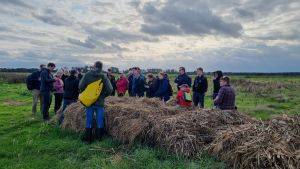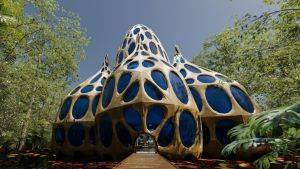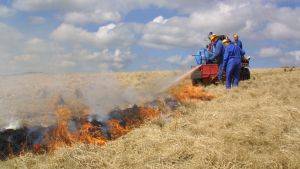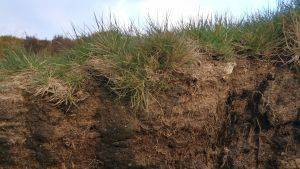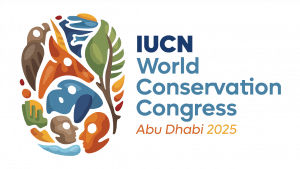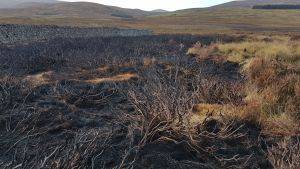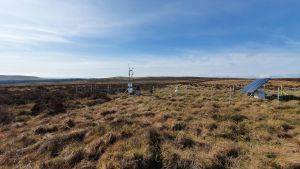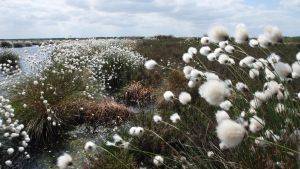Restoring damaged peatlands could stop millions of tonnes of carbon dioxide leaking out of Scotland’s bogs each year, says the IUCN UK Peatland Programme. Scotland holds 80% of the UKs blanket bog peat, and a massive 3 billion tonnes of carbon is stored in these bogs.
The IUCN UK Peatland Programme, which is launching in Edinburgh today (Wednesday 24 March), has been set up to promote the multiple benefits of restoring peatlands which, in addition to helping meet Scotland’s Climate Change targets include valuable biodiversity, water management and archaeological services.
Huge areas of bog have been drained in the past and carbon that was locked in the peat for thousands of years is rapidly being released to the atmosphere. Restoring peatlands and allowing the natural peat forming vegetation to recover has been shown to be an effective and cost efficient way of reversing the carbon loss, and could save 2.4 million tonnes of carbon emissions a year. Even taking account of methane - a strong greenhouse gas released by some peatlands - there are significant overall climate change benefits to be gained.
Clifton Bain, Director of the Peatland Programme said, “Damaged peatlands are a major source of emissions, both here in Scotland and world wide. Proposed changes to international rules on carbon accounting will allow Scotland to get full credit for its peatland restoration work, including the massive conservation efforts in the Flow Country of Caithness and Sutherland, one of the worlds largest blanket bogs.”
The Cabinet Secretary for Rural Affairs and the Environment, Richard Lochhead MSP, said "Peatlands are a vitally important part of our soils resource and landscapes and we have a duty to protect these precious habitats. With the majority of the UK's peatlands found in Scotland, they are crucial for supporting our biodiversity, purifying our water and supporting natural flood management.
"This is why the Scottish Government welcomes the IUCN UK Peatland Programme to Scotland during the International Year of Biodiversity. Past damage to peatlands has been a costly problem but we now have some world leading examples of restoration. I hope to see further opportunities being pursued in future to bring Scottish peatlands back to peak condition, bringing with them a multitude of benefits for our natural environment."
Lord Jamie Lindsay, Patron of the Programme’s Commission of Inquiry into Peatland Restoration said, “As the importance of peatland restoration in combating climate change achieves international recognition, this is the opportune time to step up our efforts in restoring these enormously important ecosystems. We need to find ways reward good peatland management for the delivery of valuable environmental services.”
Dr Steve Chapman, Scientific Co-ordinator of the Programme’s Commission of Inquiry into Peatland Restoration said, “Scotland’s research institutions have a long history of studying peatlands, but we are only now beginning to grasp just how vital they are as carbon stores, for biodiversity and water management. The Flow Country in Caithness could become an international showcase demonstrating successful restoration work and the benefits such work can provide.”
ENDS
For more information, please contact:
Nicola McGovern, SWT Press Officer
0131 312 4742
nmcgovern@swt.org.uk
Notes
- The IUCN (International Union for the Conservation of Nature) UK Peatland Programme exists to promote peatland restoration in the UK and advocates the multiple benefits of peatlands through partnerships, strong science, sound policy and effective practice. The work of the Peatland Programme is overseen by a coalition of environmental bodies including the Scottish Wildlife Trust, John Muir Trust, Yorkshire Wildlife Trust, RSPB, North Pennines AONB, Moors for the Future and the University of East London. The Programme is funded by the Peter De Haan Charitable Trust.
- The Scottish Wildlife Trust acts as the press office on behalf of the IUCN (International Union for the Conservation of Nature) UK Peatland Programme.

